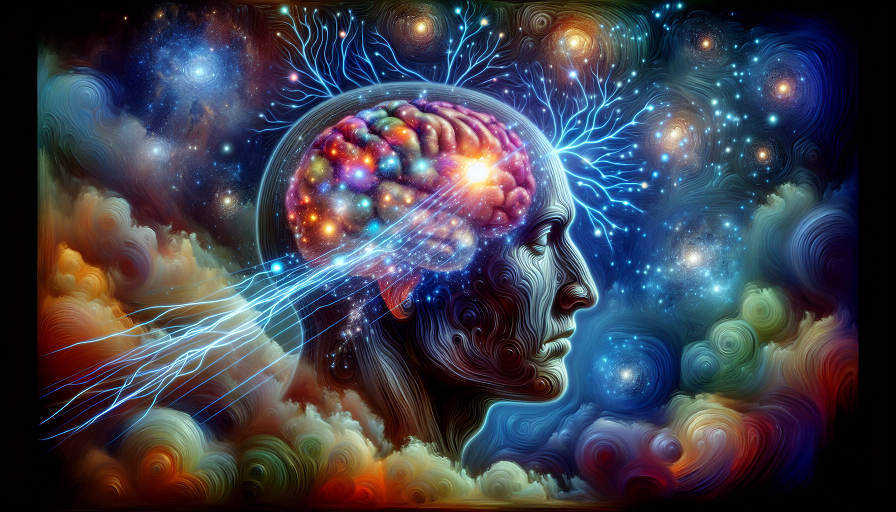
We’ve all seen it: the entrepreneur working 14-hour days. The student who never stops studying. The professional bouncing between meetings, inboxes, and projects with no off switch. They seem sharp. Driven. Unstoppable.
Until they aren’t.
Mental sharpness, contrary to popular belief, doesn’t come from pushing harder or staying constantly busy. It comes from balance—from knowing when to accelerate and when to let the brain recover, reset, and recalibrate.
Contents
What Mental Sharpness Actually Means
Mental sharpness is more than raw IQ or intellectual horsepower. It’s a blend of:
- Attention: The ability to focus on relevant stimuli
- Working memory: Holding and manipulating information in real time
- Processing speed: Reacting and computing quickly
- Mental flexibility: Adapting to change and switching tasks efficiently
- Emotional regulation: Staying level-headed under pressure
When all of these systems are working well, you feel clear, agile, and responsive. But they rely on energy, neurotransmitter balance, sleep, and restorative cycles to function. Ignore that need for balance, and sharpness quickly gives way to mental erosion.
The Hidden Cost of “Always On” Culture
We live in a society that rewards busyness. Hustle is praised. Rest is viewed as laziness. But your brain cannot function at peak levels without breaks. It’s not a glitch—it’s biology.
Constant cognitive engagement leads to:
- Decision fatigue: Decreased ability to make thoughtful choices as the day goes on
- Reduced prefrontal cortex activity: Less impulse control, creativity, and strategic thinking
- Emotional volatility: Increased irritability and reactivity
- Physical symptoms: Headaches, sleep disruption, digestive issues
The irony? The harder you push to stay sharp without rest, the faster your brain dulls.
How Burnout Sneaks Up on High Performers
Burnout doesn’t always begin with stress. It often begins with passion.
You’re committed. You’re driven. You care. And that’s exactly what puts you at risk—because you override signals, skip breaks, and suppress discomfort until your body or mind finally says, “Enough.”
Signs of Cognitive Burnout:
- Brain fog, memory lapses, or difficulty concentrating
- Constant tiredness—even after rest
- Loss of motivation or pleasure in work you once loved
- Short fuse, anxiety, or feelings of numbness
This isn’t weakness. It’s a biological emergency brake—your nervous system trying to stop you from frying the circuits.
The Science of Recovery: What Your Brain Needs to Reset
Sharpness isn’t just about energy—it’s about rhythm. Your brain has natural cycles for peak performance and recovery:
- Ultradian rhythms: 90–120-minute cycles of focus, followed by 15–30 minutes of low-energy recovery
- Circadian rhythms: A 24-hour cycle that regulates sleep, mood, and alertness
- Glymphatic system activity: Deep sleep flushes metabolic waste and resets neural clarity
When you respect these rhythms, your brain performs better with less strain. When you ignore them, focus turns into fatigue, and productivity becomes a performance trap.
How to Stay Sharp—Without Burning Out
1. Work in Focus Cycles
Use the 90-minute focus + 20-minute rest model. Set a timer, remove distractions, and go deep. Then, stop—even if you feel like you “could keep going.” That’s how you preserve long-term stamina.
2. Protect Your Sleep Like a Sacred Asset
Sleep is your brain’s reset button. Aim for 7–9 hours of consistent, high-quality sleep. Prioritize wind-down rituals, reduce blue light before bed, and avoid over-caffeination late in the day.
3. Give Your Brain Something New
Monotony can dull cognition. Sprinkle in non-work novelty like walks in new places, reading outside your niche, or spontaneous conversations. This boosts dopamine and neural plasticity.
4. Create a Hard Stop Time
Set a non-negotiable end to your workday. Your brain needs time without problem-solving demands to decompress and consolidate memory. Don’t wait until you “feel done.” Schedule the stop.
5. Notice the Early Warning Signs
- You re-read the same paragraph three times
- Your temper shortens for no reason
- You start procrastinating tasks you usually enjoy
These are signs you need a break—not more grit.
Can Nootropics Help Sustain Mental Performance?
While no supplement replaces good habits, many high performers use nootropic compounds to support clarity, resilience, and stamina—especially during cognitively demanding periods.
Top choices include:
- Citicoline: Enhances mental energy, attention span, and working memory
- L-theanine + caffeine: A synergistic duo that supports alertness without overstimulation
- Rhodiola rosea: An adaptogen that helps buffer stress and support cognitive endurance
- Bacopa monnieri: May enhance long-term memory and cognitive processing speed
Used intentionally, these supplements can be part of a sustainable strategy for staying sharp without pushing into burnout.
The Role of Mental Boundaries
One of the most overlooked parts of staying mentally sharp is setting boundaries—not just with your schedule, but with your own inner expectations.
Ask yourself:
- “Am I working to be productive—or to feel valuable?”
- “Would I ask someone I care about to maintain this pace?”
- “What am I afraid will happen if I slow down?”
Your brain doesn’t need you to be perfect. It needs you to be present, rested, and aware.
Staying sharp isn’t about pushing harder. It’s about learning when to push—and when to pause. Your brain is brilliant, but it’s not a machine. It’s an organic, adaptive system that thrives in cycles of focus and restoration.
So protect it. Respect it. Let it breathe. Because the sharper the mind, the more it knows when to stop sharpening.

